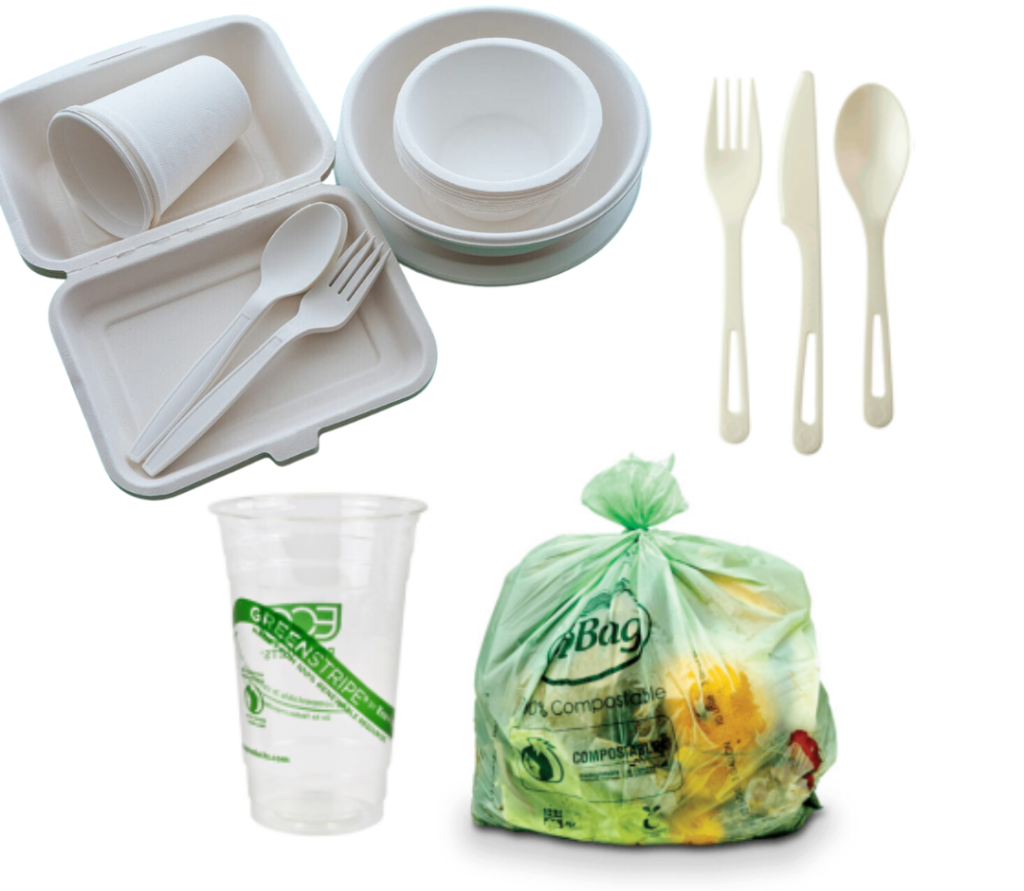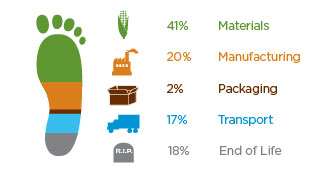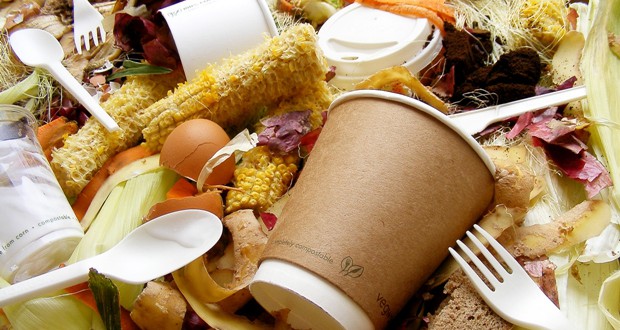Composting is a very effective way to reduce one’s environmental impact. Organic waste, including food waste and yard waste makes up a large percentage of trash thrown into landfills every year. When food waste winds up in a landfill, the process of it breaking down emits harmful greenhouse gas emissions such as methane, which is 80 times more potent of a greenhouse gas than CO2, and is responsible for more than 25 percent of global warming! So while composting is a great way to reduce GHG emissions, it’s also equally important to compost your items correctly, so that they don’t wind up at the landfill unintentionally.

Perhaps the biggest point of confusion over compost comes when consumers are dealing with “compostable” foodware or bio-plastics. Many single-use items nowadays such as forks, bags, plates, etc. are marketed as being made up of environmentally friendly “compostable” fiber or “bio-based” plastics. Many people understandably assume that these are ok to include in their compost bins, and send them off to be composted along with their lemon peels, eggshells, leftover food scraps, etc. However, these single-use items aren’t as eco-friendly as they’re marketed to be. Most, if not all, compostable foodware is only truly compostable under precise conditions in industrial commercial composting plants, of which Truckee does not have access to. Our compost is sent to a company called “Full Circle Soils and Compost” in Carson City, Nevada, where paper or fiber-based products and “compostable” plastics aren’t accepted. These items, instead of being composted, contaminate large batches of compost that are then not viable to be used as compost and instead must be sent to landfill.

Additionally, “compostable” or “bio-based” plastics are not much more beneficial for the environment than regular single use plastics. These items still require large amounts of materials, chemicals, and energy to produce, sometimes even more than conventional plastics. “Compostable” products still require land, fertilizer, water, and additional resources to grow the materials they are made from, such as corn or fiber. Then they must be manufactured, packaged, and transported, only to be used once and thrown away to sit in a landfill forever. These products generate a considerable greenhouse gas impact over their very short lifespan, making reusable foodware always a better alternative. Reusable items are only produced once, and can often be used over 100 times, reducing the carbon footprint per use significantly. Reusables are always the better option over any single-use item, even “compostable” single-use.
So how can you ensure your food scraps get composted? Here are some important things to remember:
- Only compost food scraps here in Truckee. This includes inedible food scraps like egg shells, peels, and bones. Keep “compostable” plastics out of the food waste, as well as fiber-based products like takeout containers, coffee filters, tea bags, napkins, or paper cups.
- Don’t fall for the greenwashing marketing, avoid “eco-friendly” or “compostable” single-use foodware and instead opt for reusable containers and silverware.
- Know where to drop off your uncontaminated food waste! Don’t put food waste in curbside bins, it goes to a different facility and wildlife will be attracted to it. Instead, store it in a compost pail (sold locally) and take it to one of three conveniently located food waste drop-off dumpsters located around Truckee. These containers are located at:
- Truckee Town Hall
- Mountain Hardware & Sports on Donner Pass Road
- Glenshire General Store
Together we can help reduce waste and greenhouse gas emissions, and compost towards a more sustainable Truckee!
